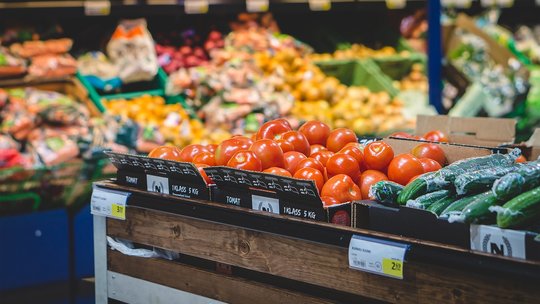
To survive in an uncertain inflationary environment, startups need to be scrappy and creative.
The latest data on inflation signals more creativity may be needed. Numbers released Wednesday could set the tone for the Fed’s likely rate cut next week, but they’re frustrating for Triangle startups that keep seeing prices tick up with little relief.
The consumer price index, a measure out of the U.S. Labor Department that looks at the costs of goods and services across the economy, increased 0.2 percent for the month, in line with Dow Jones estimates and putting the 12-month inflation rate at 2.5 percent. But the core CPI, which excludes food and energy prices, increased 0.3 percent, adding up to a 3.2 percent inflation rate over the past year, slightly higher than estimates.
Inflation isn’t slowing fast enough for local startups, many of which have had to make tough decisions in recent months due to the higher cost of doing business. Those firms include Seal the Seasons, which recently suspended a distribution deal with a discount grocer because it was unable to make price cuts work.
Seal the Seasons’ mission statement is about supporting local farmers. Right now, the Chapel Hill company sells products such as frozen fruit and smoothie kits at 4,500 grocery stores across the country.
But amid the shaky math of inflation, Food Lion isn’t one of them. Seal the Seasons is a premium product — a category with less exposure to inflation, as it was always more expensive than some of its competitors, but discount grocers are feeling the pressure across their shelves, founder Patrick Mateer said.
“They are pressuring us to lower the prices even further, so we had to stop partnering with [Food Lion] earlier this year,” he said.
“In their eyes, someone had to sacrifice, and we can’t let that be the farmers,” Mateer said.
Seal the Seasons is still on shelves at stores across the country, including Whole Foods, Harris Teeter and Publix.
Also feeling the pain in the premium sector is UTTy, a Raleigh startup tackling odors with a product that helps dry “nasty hockey gear."
CEO Mark Uttridge, who runs the company with his sons, said sales are up. But the firm has had to make tough choices. It sells much of its products through Amazon, where cheaper “copy cat” competitors have taken market share, forcing UTTy to drop its own prices from $39.99 to $29.99.
It comes at a time when the company is seeing expenses rise, particularly for the shipping cost of components. The cost of shipping went “through the roof” post-pandemic, three and a half times what it was. While it’s come down slightly, UTTy has had to rework supply deals and get creative with third party labor contracts.
It all adds up, and the math is a tough sell. Uttridge has limited the firm's retail presence to make the situation manageable.
He said that while the direct impact of any Fed action may take time, companies like his might still feel the benefits in the coming months.
“Just the psyche of your consumer starts to change,” he said. “They’ll start to get relief in other places, grocery stores, fuel … that usually leads to more disposable income.”
Should pricing pressure curb, Mateer is hopeful growth will follow. He is keeping conversations with Food Lion open, hoping to put fruit back on the grocer's shelves soon.
“I just think it’s going to take a year or two or three for wage growth to catch back up, inflation to slow down and people to feel like their pocketbooks buy a little more again,” he said.



